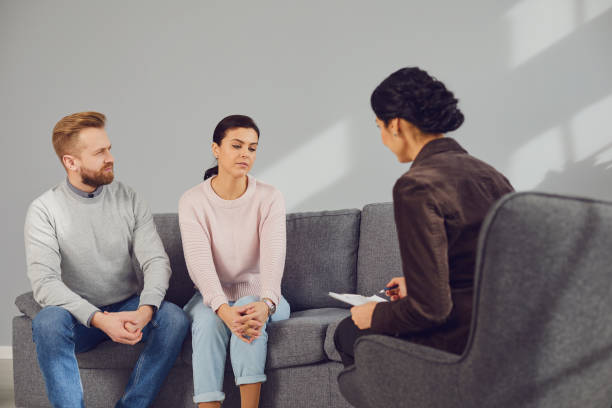Couples Therapy is a powerful tool for improving relationships, fostering better communication, and resolving conflicts. While professional guidance is invaluable, many couples also benefit from practicing therapeutic exercises at home. These exercises can strengthen emotional bonds, enhance understanding, and create a healthier dynamic between partners.
In this article, we’ll explore some of the most effective Couples Therapy Dubai exercises that you can try at home. Whether you’re looking to deepen your connection or navigate challenges together, these techniques can help you build a stronger, more fulfilling relationship.
The Importance of Couples Therapy Exercises
Engaging in structured exercises helps couples develop essential skills for maintaining a healthy relationship. These activities encourage open communication, empathy, and mutual respect—key components of any successful partnership.
By practicing Couples Therapy techniques at home, couples can reinforce what they learn in sessions and apply these tools in their daily lives. The following exercises are commonly used in professional therapy and can be easily adapted for home use.
Active Listening Practice
One of the most fundamental skills in Couples Therapy is active listening. Many conflicts arise from misunderstandings, and learning to truly hear each other can make a significant difference.
How to Practice Active Listening at Home:
-
Set aside dedicated time without distractions.
-
One partner shares their thoughts while the other listens without interrupting.
-
The listener then paraphrases what they heard to ensure understanding.
-
Switch roles and repeat the exercise.
This exercise fosters empathy and ensures both partners feel heard and validated.
The Emotion Wheel Exercise
Understanding and articulating emotions is crucial in any relationship. The Emotion Wheel is a tool used in Couples Therapy to help partners identify and express their feelings more clearly.
Steps to Use the Emotion Wheel:
-
Find an emotion wheel (available online) or create a simple version.
-
Take turns pointing to emotions you’ve felt recently.
-
Discuss what triggered these emotions and how they affected you.
This exercise helps couples move beyond surface-level conversations and connect on a deeper emotional level.
Appreciation and Gratitude Sharing
Expressing gratitude strengthens emotional bonds and reinforces positive interactions. In Couples Therapy, partners are often encouraged to regularly acknowledge each other’s efforts and qualities.
How to Incorporate Gratitude at Home:
-
Set aside a few minutes each day to share something you appreciate about your partner.
-
Be specific—mention actions, traits, or moments that made you feel valued.
-
Encourage a habit of verbalizing small acts of kindness.
Regular gratitude practice can shift focus from conflicts to positive aspects of the relationship.
The “I Feel” Statements Technique
Miscommunication often leads to blame and defensiveness. The “I Feel” statements technique, frequently used in Couples Therapy, helps partners express emotions without accusing the other person.
How to Use “I Feel” Statements:
-
Structure your statement as: “I feel [emotion] when [situation] because [reason].”
-
Example: “I feel hurt when plans change last minute because I was looking forward to spending time together.”
-
Avoid using “you” statements that may sound accusatory.
This approach minimizes conflict and encourages constructive dialogue.
Role Reversal Exercise
Seeing things from your partner’s perspective can reduce tension and increase empathy. Role reversal is a common Couples Therapy exercise where partners switch roles to understand each other’s viewpoints.
How to Try Role Reversal at Home:
-
Pick a recent disagreement or recurring issue.
-
Each partner argues the other’s side as if it were their own.
-
Reflect on how it feels to voice your partner’s concerns.
This exercise helps break down barriers and fosters mutual understanding.
The Five-Minute Connection Ritual
Small, consistent moments of connection can have a big impact. Many Couples Therapy programs recommend daily rituals to maintain intimacy.
Ideas for a Five-Minute Connection:
-
Share highlights and challenges of your day.
-
Hold hands and sit in comfortable silence.
-
Exchange a meaningful compliment.
These brief but intentional moments reinforce closeness and emotional safety.
Conflict Resolution with Time-Outs
Heated arguments can escalate quickly. Couples Therapy often teaches the importance of taking structured breaks to cool down before resuming discussions.
How to Implement a Time-Out System:
-
Agree on a signal (e.g., a hand gesture) to pause a discussion.
-
Take 15-30 minutes apart to calm down.
-
Return to the conversation with a clearer mindset.
This technique prevents destructive fights and promotes healthier conflict resolution.
Dream Sharing and Future Planning
Couples Therapy often explores shared goals and dreams to strengthen alignment. Discussing future aspirations fosters teamwork and excitement about the relationship’s direction.
Questions to Explore Together:
-
Where do we see ourselves in five years?
-
What adventures or milestones do we want to experience?
-
How can we support each other’s personal growth?
These conversations reinforce a sense of partnership and shared purpose.
The Weekly Check-In
Regular relationship assessments help address concerns before they escalate. Many therapists recommend a structured weekly check-in for couples.
How to Conduct a Weekly Check-In:
-
Choose a relaxed time to talk.
-
Discuss what went well in the relationship that week.
-
Gently bring up any concerns or unmet needs.
-
Plan small adjustments for the coming week.
This habit ensures ongoing communication and proactive problem-solving.
Final Thoughts on Couples Therapy at Home
Practicing Couples Therapy in Dubai exercises at home can significantly enhance relationship quality. These techniques—rooted in professional therapy methods—help couples communicate better, resolve conflicts, and nurture emotional intimacy.
While these exercises are beneficial, some situations may require professional Couples Therapy for deeper issues. However, incorporating these practices into daily life can create a stronger, more resilient partnership.
By dedicating time and effort to these exercises, couples can build a foundation of trust, understanding, and lasting love. Whether used independently or alongside therapy, these tools empower couples to grow together and navigate challenges with confidence.



